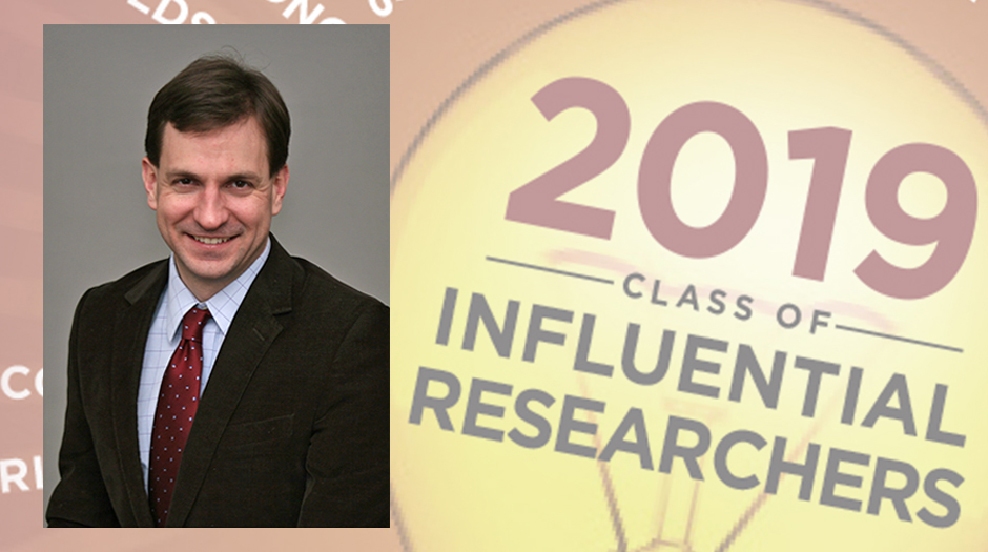 Brown Assistant Professor of Engineering Franklin Goldsmith has been named to the 2019 Class of Influential Researchers by Industrial & Engineering Chemistry Research, a top chemistry/chemical engineering journal.
Brown Assistant Professor of Engineering Franklin Goldsmith has been named to the 2019 Class of Influential Researchers by Industrial & Engineering Chemistry Research, a top chemistry/chemical engineering journal.
The global team of editors and editorial advisory board members identified its newest class of 32 influential, early career researchers on the basis of quality and impact of research. I&EC Research has been at the forefront of chemical engineering research since 1909, and continues today as largest and most-cited general chemical engineering research journal in the world.
I&EC Research published a virtual special issue showcasing papers that feature the 32 honorees. In Goldsmith's contribution, "Computer-Generated Kinetics for Coupled Heterogeneous/Homogeneous Systems: A Case Study in Catalytic Combustion of Methane on Platinum," he and his co-authors significantly expanded the predictive capability of RMG-Cat, which is a software that they have developed to automatically predict the most important reactions on catalytic surfaces. The team performed density functional theory calculations for 69 adsorbates on Pt(111), adding the resulting thermodynamic properties to an extensively updated RMG-Cat. This thermo database is significantly more accurate, including nitrogen-containing adsorbates for the first time, and better capabilities for predicting the thermochemistry of novel adsorbates. Additionally, RMG-Cat can now simultaneously pursue a mechanism expansion both on the surface and in the gas phase. This heterogeneous/homogeneously coupled capability was tested on the catalytic combustion of methane on platinum, and results confirmed that under some conditions the catalyst is capable of inducing thermal ignition in the gas phase. With these new capabilities, RMG-Cat can now be applied to a broad range of problems in heterogeneous catalysis, particularly those related to energy conversion and fuel synthesis at high temperature.
Goldsmith joined the Brown faculty in 2014. He currently serves as the Graduate Representative for the Chemical and Environmental Engineering Program. Originally from western North Carolina, he received his B.A. in Philosophy from the University of North Carolina in 1999, followed by B.S. in Mathematics and Chemical Engineering from North Carolina State University in 2003. From 2003 to 2004, Goldsmith was a Fulbright Scholar in Mathematics at the Frauenhofer Institute for Solar Energy Systems in Freiburg, Germany and was a visiting graduate student in Applied Mathematics at the University of Freiburg. Goldsmith received his Ph.D. in Chemical Engineering from the Massachusetts Institute of Technology in 2010. He spent two years in Berlin as an Alexander von Humboldt Scholar in Inorganic Chemistry at the Fritz-Haber Institute of the Max Planck Society, followed by one year as an Argonne Director's Fellow in Theoretical Chemistry at Argonne National Laboratory. His research focuses on the theoretical, computational, and experimental quantification of reaction rate constants, with a particular focus on combustion chemistry, heterogeneous catalysis, energetic materials, propellants, and atmospheric chemistry.